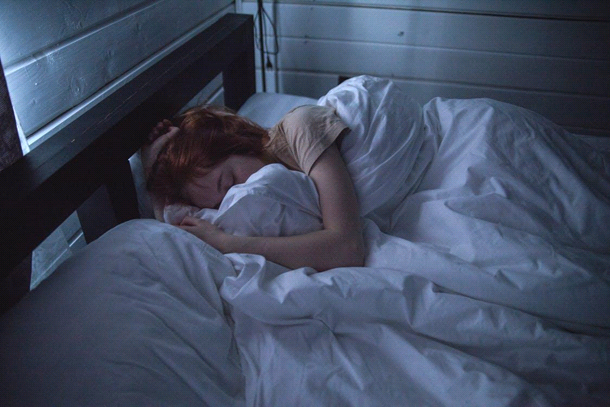Still Awake? It Could Be Your Ipad.
Is setting down your iPad the last thing you do before bed? New research shows that all of those nighttime hours spent with your tablet can wreak havoc on your sleep.
The bright light emitted from these tablets can suppress melatonin. That’s a hormone that helps control sleep and wake cycles, called circadian rhythms.
The researchers only looked at the iPad, iPad 2, and a tablet known as the Asus. Using these tablets for two hours on their brightest settings suppressed melatonin by about 22%. The findings appear in the journal Applied Ergonomics.
“If they are bright and they are big and are close to your eyes, they have more potential to disrupt your melatonin than the TV, which is usually farther way,” says researcher Mariana Figueiro. She is an associate professor at Rensselaer Polytechnic Institute in Troy, N.Y.
iPhones and other small gadgets may not affect circadian rhythms. “Smaller devices emit less light,” she says. But even if these devices aren’t zapping the body’s melatonin supply, they may still be disrupting sleep by delaying your bedtime, she says.
1. Invest in a Filter
Inexpensive filters can help turn down the glare and block out melatonin-zapping blue light, says Figueiro. Look for one that cuts off wavelengths below 520 nanometers (nm). “You can still see the screen and do your task, although the color is compromised.”
2. Dim the Lights
In the study, participants used the tablets at full brightness, but you don’t have to, she says. “Use the automatic dimmer function at night,” she says. Turn off the lights in your bedroom as well.
3. Distance Yourself From Your Tablet
“Proximity is an issue,” says Michael Breus, PhD. “When we use these devices, we hold them closer to our face than we would a TV or a computer.”
4. Impose an E-Curfew
“These devices are faking out our body and saying it’s morning when it’s night,” Breus says. This disruption in circadian rhythms can affect learning among school-aged children. “Impose an electronic curfew,” he suggests.
Artificial lighting is one of the riding culprits alongside caffeine, stress, chronic pain, and diet that can impair your sleep health. Factoring in the above recommendations can enable you to gain a restful, quality night’s sleep every night. So that whatever the day might bring you, you can sleep peacefully and feel refreshed and revitalized the following day. And more importantly, you can create a healthy distance between you and any poor health conditions associated with exposure to blue light at night time.
Keeping a Sleep Journal
It is important to not ignore any sleep quality issues. Before meeting with your physician, start keeping track of any changes through a sleep journal. Tracking your sleep patterns and routines at bedtime will be a big asset to start expert help. Download our free sleep journal here.
If you have never kept a sleep journal, start simple:
- Wake up and bedtime
- The last time and meal you last ate
- The season and room temperature
- How tired you were at work
- The last drink you took (water, caffeine)
- Any medications you took
- Time of day and amount of exercise during the day
If you live in Alaska and want to see if a sleep study is right for you, contact The Alaska Sleep Clinic for a free 10-minute phone call with a sleep educator who can help determine if a sleep study is necessary or if a consultation with our sleep specialist needs to be scheduled


